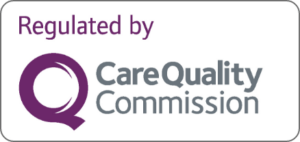The Hidden Impact of Class B Drugs on Mental Health: A Comprehensive Guide

Introduction
Introduction
Mental health and substance misuse are deeply interconnected, with Class B drugs occupying a critical position in the landscape of addiction and mental health challenges. Substances like cannabis, amphetamines, barbiturates, and synthetic cannabinoids are widely used recreationally, but their effects on the mind can range from mild to devastating.
This comprehensive guide dives deep into the effects of Class B drugs on mental health, exploring short-term and long-term consequences, the science behind their mechanisms, personal stories of recovery, and actionable advice. By integrating insights from Rainford Hall’s expert rehabilitation programs, readers can access a wealth of resources tailored for healing and prevention.
Understanding Class B Drugs: Definitions and Implications
What are class B Drugs?
Class B drugs are categorised under various legal frameworks due to their significant potential for harm, though considered less dangerous than Class A substances like heroin or cocaine. They include:
- Cannabis (where not decriminalised): Known for its psychoactive effects, cannabis is often underestimated in its potential for mental health consequences.
- Amphetamines: Commonly referred to as “speed,” these stimulants can have a devastating effect on mental well-being when misused.
- Synthetic Cannabinoids: Laboratory-made substances that mimic THC, often with unpredictable and dangerous effects.
- Barbiturates: Once widely prescribed for anxiety and sleep disorders, these drugs are now restricted due to their high abuse potential.
The Legal Framework
The legal classification of these drugs carries serious consequences. Possession, production, or distribution can lead to fines, imprisonment, and a permanent criminal record. These penalties vary by country but underline the gravity of misuse.
Learn more about professional intervention and legal support at:
The Science Behind Class B Drugs and Mental Health
Neurochemical Interactions
Class B drugs disrupt the brain’s delicate balance of neurotransmitters:
- Cannabis: Influences the endocannabinoid system, which regulates mood, memory, and appetite. High THC concentrations can induce paranoia and cognitive impairments.
- Amphetamines: Flood the brain with dopamine, causing euphoria. However, this depletes dopamine stores, leading to depression and anhedonia (inability to feel pleasure).
- Synthetic Cannabinoids: Bind more strongly to brain receptors than THC, often causing severe mood swings, hallucinations, and psychosis.
- Barbiturates: Suppress the central nervous system, leading to sedation. Long-term misuse can result in memory loss and depression.
Short-Term Effects on Mental Health
- Mood Swings: A rollercoaster of emotions, from euphoria to despair.
- Anxiety and Paranoia: Common, particularly with cannabis and synthetic cannabinoids.
- Sleep Disruption: Stimulants like amphetamines interfere with sleep cycles, exacerbating mental health issues.
Long-Term Effects on Mental Health
Prolonged misuse of Class B drugs significantly impacts mental health:
- Chronic Anxiety and Depression: Persistent drug use alters brain chemistry, making recovery challenging.
- Cognitive Decline: Memory, focus, and decision-making capabilities are impaired, sometimes irreversibly.
- Psychosis: Cannabis and synthetic cannabinoids, especially in high doses, increase the risk of psychotic disorders.
- Addiction: Repeated use leads to dependence, creating a cycle of mental health deterioration.
Explore recovery solutions tailored for long-term mental health issues:
Real-Life Stories of Misuse and Recovery with Class-B Drugs
Sarah’s Battle with Cannabis-Induced Paranoia
Sarah, a college student, began using cannabis socially to manage her anxiety. Over time, her usage escalated, leading to severe paranoia and panic attacks. She described feeling trapped in her own mind. Sarah credits her recovery to the Free Family Workshop at Rainford Hall, where her loved ones gained the tools to support her journey.
Tom’s Struggle with Amphetamines
Tom was a high-achieving professional who turned to amphetamines to stay ahead at work. Over two years, he became reliant on the drug, leading to insomnia, aggressive behaviour, and severe depression. After an intervention organised through Rainford Hall, he joined the Enhanced 12-Step Program, finding a path to healing.
Research backed Evidence on Class B Drugs
A Lancet Psychiatry study revealed that daily cannabis users are up to five times more likely to develop schizophrenia than non-users. Early intervention through Family Therapy Retreats can help mitigate risks.
Synthetic Cannabinoids’ Effects on Mental Health
NIDA research underscores the dangers of synthetic cannabinoids, with cases of aggression, suicidal ideation, and psychosis being alarmingly high. Comprehensive recovery programs like Private Home Detox can address such severe cases.
Amphetamines and Cognitive Damage
The Journal of Neuropsychopharmacology highlights that prolonged amphetamine use reduces executive function and increases the likelihood of depression. Access tools for recovery at Recovery Reunions & Retreats.
Practical Strategies for Managing and Recovering from Class B Drug Misuse
Recognising Signs of Addiction
- Unexplained mood swings or emotional withdrawal.
- Increased secrecy or defensiveness about activities.
- Decline in work, school, or social performance.
Steps to Recovery
- Seek Professional Help: Programs like Specialist Therapy Organisations provide a structured approach to treatment.
- Involve Family: Open communication and support from loved ones are critical. Rainford Hall’s Family Interventions offer tools to navigate these conversations.
- Commit to Aftercare: Sustaining recovery requires ongoing effort. Rainford Hall provides Free Client Aftercare to ensure long-term success.
Preventative Measures
- Educate yourself on the risks of Class B drugs through resources like Rainford Hall’s workshops and retreats.
- Promote healthy coping mechanisms like exercise, mindfulness, and creative outlets.
Rainford Hall can Help
At Rainford Hall, we understand the complexities of addiction and mental health. Our tailored programs address the unique needs of individuals and their families:
- Private Home Detox: A safe and discreet way to begin recovery.
- Family Therapy Retreats: Strengthen family bonds and foster understanding.
- Recovery Reunions & Retreats: Maintain motivation and celebrate milestones in a supportive environment.
Conclusion: Taking the First Step Toward Recovery
Class B drugs significantly impact mental health, but with awareness and support, recovery is achievable. Understanding the risks, recognising the signs, and seeking help are vital steps toward healing.
If you or a loved one is struggling, explore the wide range of Rainford Hall’s services designed to empower individuals and families. From Family Interventions to Enhanced 12-Step Programs, we’re here to guide you every step of the way.
Seeking Professional Help?
If you are concerned about your own drug use or suspect someone you care about might be struggling with addiction, don’t hesitate to seek professional help. There are many resources available to support you on your journey to recovery. Here are some additional resources:
- National Drug Helpline (UK): 0800 802 2312 (Free 24/7 confidential helpline)
- Steps Together Rehab
https://stepstogether.co.uk/
https://rainfordhall.com/ - NHS – Addiction Support:
https://www.nhs.uk/live-well/addiction-support/drug-addiction-getting-help/ - Talk to Frank: Provides information and support for parents about their children and drugs
https://www.talktofrank.com/
Share with:





